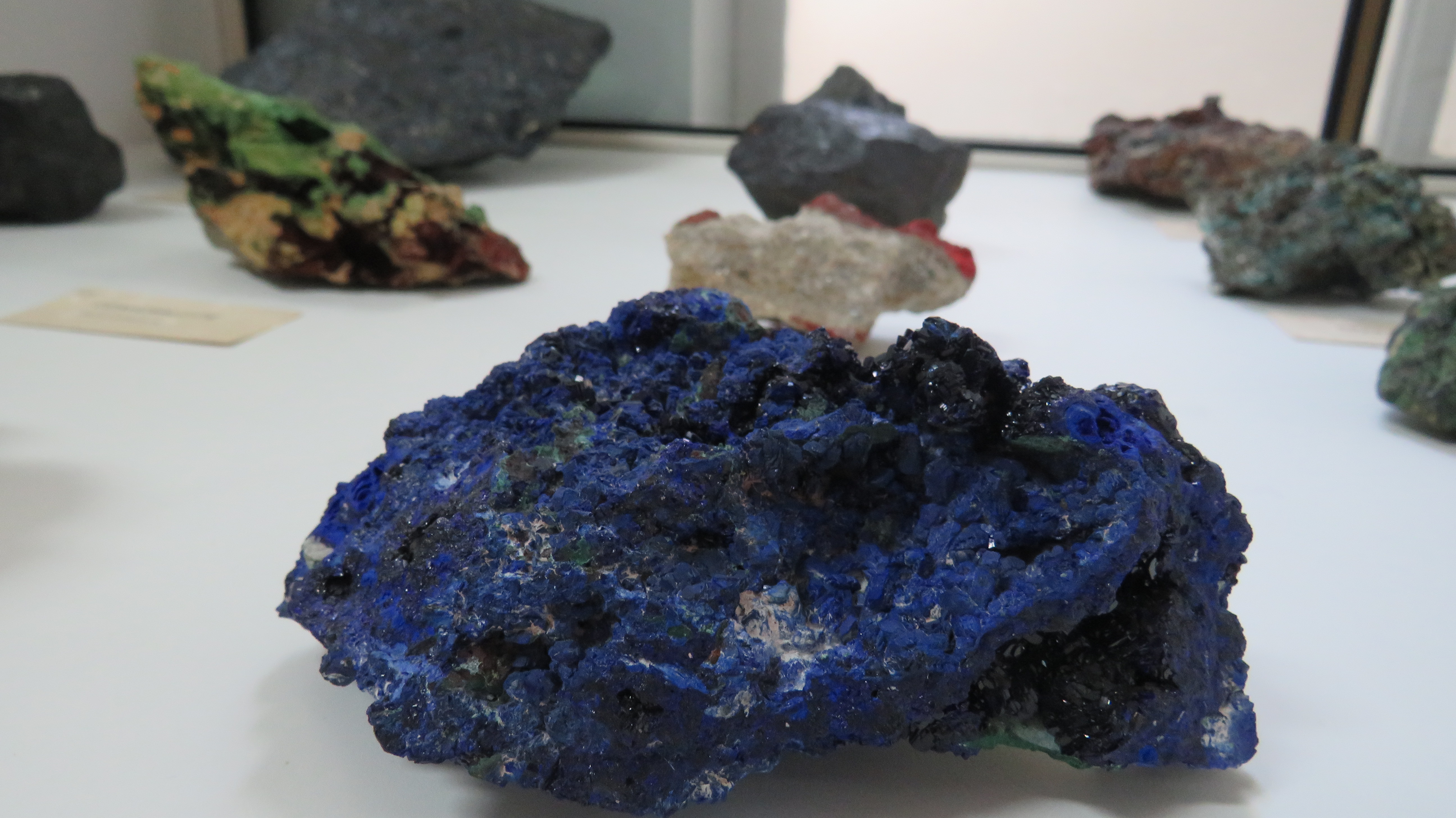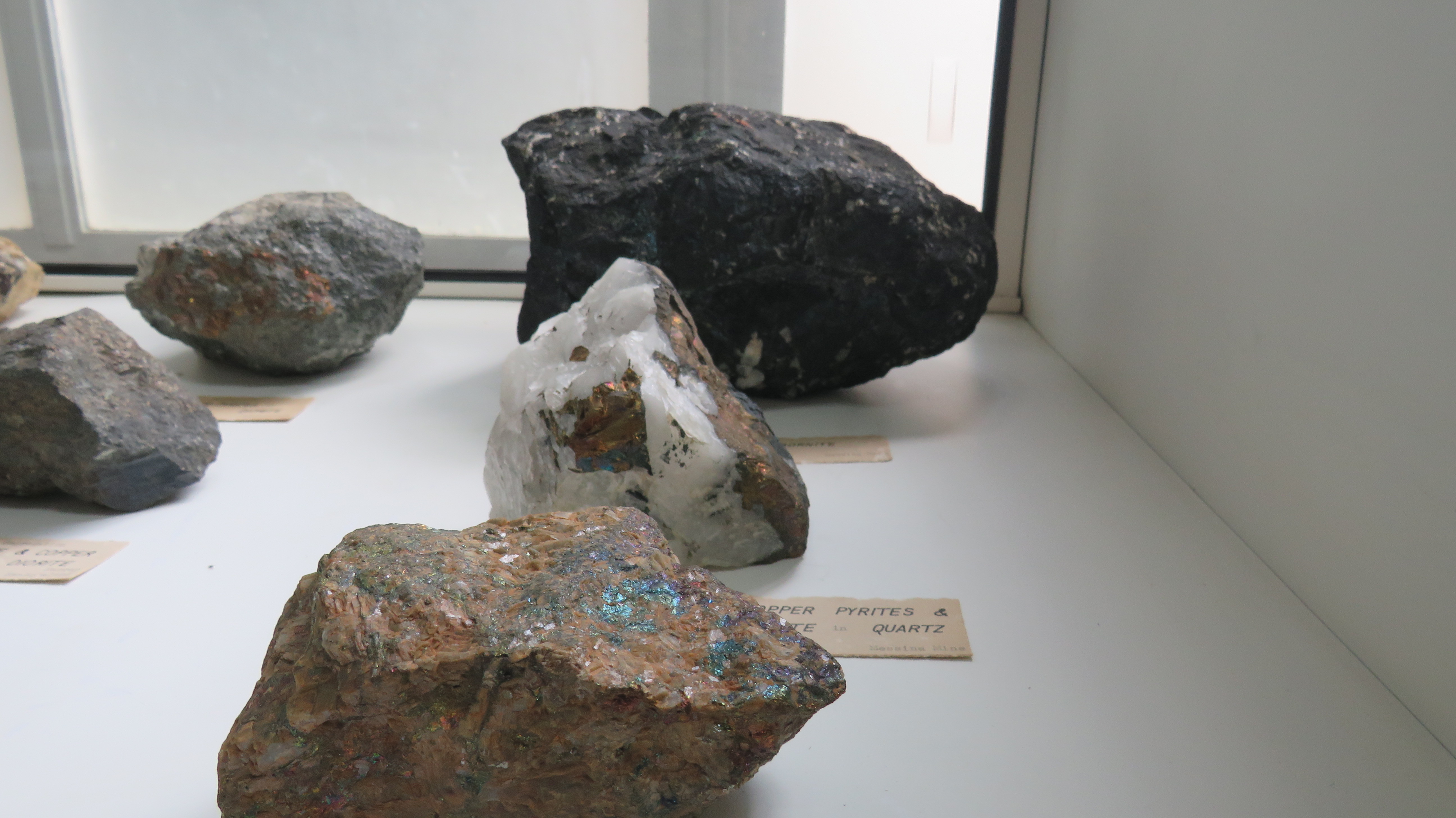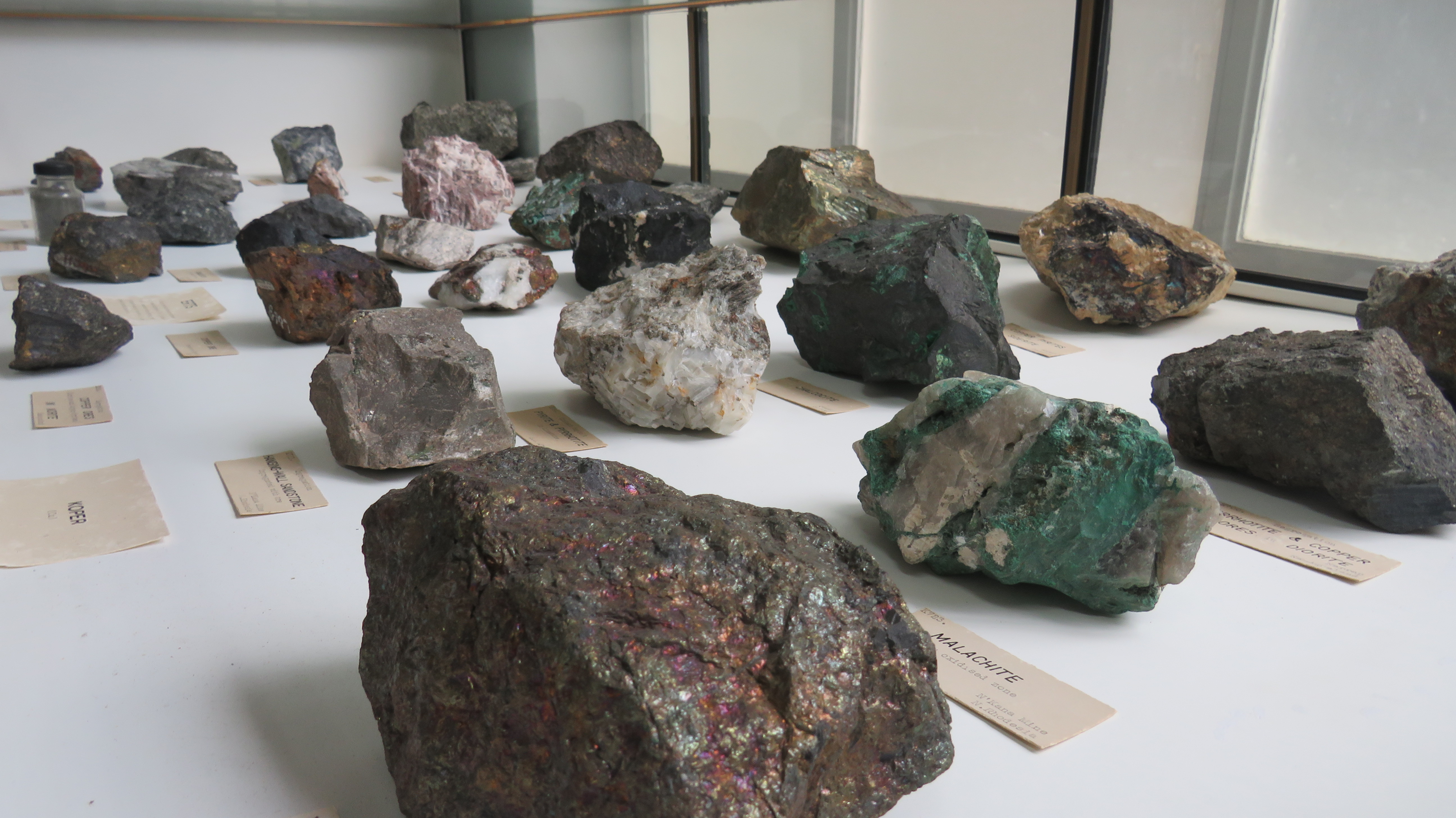Geology
224 Introduction to Mineralogy
Prof. JD Clemens
Synopsis
This
module is an introduction to mineralogy, crystallography and mineral chemistry.
The objectives are to present the geochemical basis for mineralogy, crystal
structure and crystal chemistry, to introduce the subjects of crystallography,
systematic mineralogy and phase diagrams as applied to mineral stabilities, and
to train learners in how to identify minerals in hand specimen. Both
rock-forming and ore minerals are covered and the geological contexts of their
occurrences are explained. In addition, some practical skills in library
research and presentation are covered.
Outcomes
The
module will enable students to recognise the common minerals that they will
encounter in rocks and ores, and their weathering and alteration products. It
will also provide students with an appreciation of the chemical and
structural bases for the classification of minerals and an understanding of
mineral paragenesis (the occurrences of mineral associations). This
understanding will equip the students for the microscope-based mineralogical
and petrological approaches that are used in Geology 254, 314 and 354. In
addition, the students will have become familiar with aspects of researching a
topic, and constructing and presenting the information to a group of peers.
Study
Materials and Text Book Recommendations
Through
SUN-Learn, the students have access to comprehensive class notes, guides to
lecture content, practical exercises and a variety of handout materials to
assist in learning, particularly in practical exercises. Additionally, although
no textbook is required, the students are directed toward the following
references.
- Deer,
W.A., Howie, R.A. and Zussman, J. (1996) An Introduction to the Rock-forming
Minerals. 2nd edition, Longman Scientific and Technical. London, 696 pp
- Gribble, C.D. and Hall, A.J. (1992) Optical
Mineralogy: Principles and Practice. UCL Press, London, 303 pp
- Nesse, W.D. (2000) Introduction to Mineralogy.
Oxford University Press, New York, 442 pp
In addition,
students are directed toward the following web pages for further excellent
learning materials.
Learning
OpportunitiesStudents
are encouraged to consult as many text books, journals and on-line data sources
as possible. Detailed hints and instructions are provided on how to make
a good presentation. An extensive set of supplementary course notes is
available on WebCT, reflecting and enlarging upon the concepts presented in the
lectures. The practicals too are designed as learning exercises as well as a
form of assessment, and are overseen by the lecturer and, normally, two
demonstrators.




